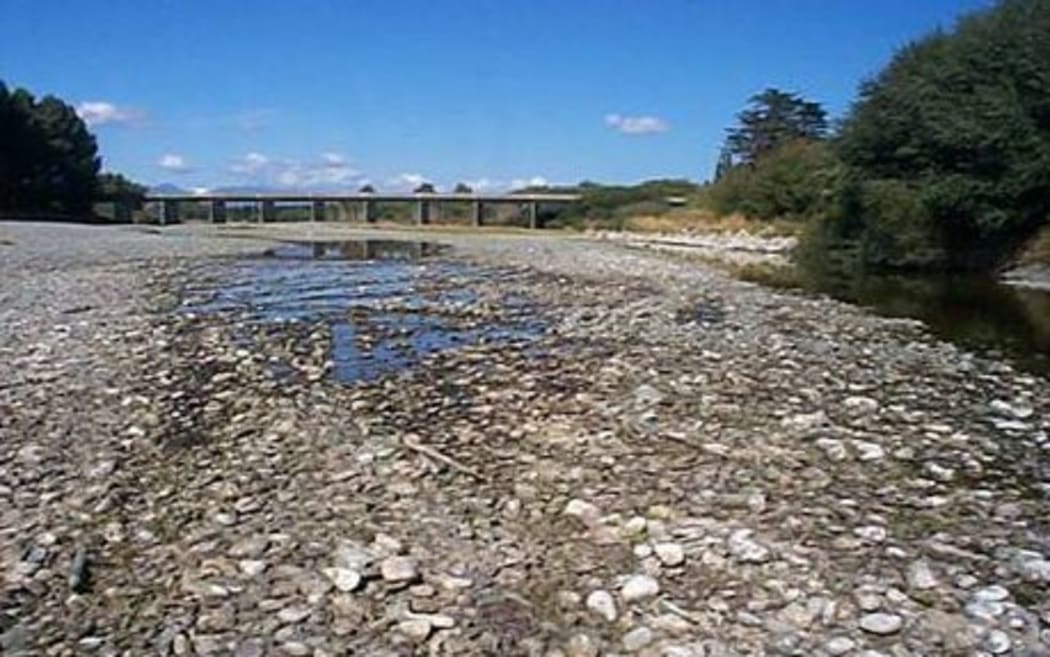Money allocated for a large dam project near Nelson from a fund aimed at improving freshwater quality is a misuse of taxpayer money, a former treasury economist says.

Waimea river often dries up over summer Photo: Tasman District Council
Environment Minister and Nelson MP Nick Smith recently announced the $7 million grant as part of a plan to distribute funding from the government's $100m Freshwater Improvement Fund.
Tasman District Council and Waimea Irrigators are partners in the dam project, which was first mooted a decade ago but was stalled by disagreement over an earlier funding model.
The council earmarked $25 million in its 2015-25 Long Term Plan for the project which is estimated to cost $82.5m, which includes about $50m for its construction.
Other potential funders include Crown Irrigation Investments and Nelson City Council.
Economist Peter Fraser told Nine to Noon the proposed project did not qualify for the fund under Ministry for the Environment guidelines.
He said its criteria for allocation of funds included a vulnerability measure and Nelson-Marlborough fell outside that.
He said he believed it would be uneconomic because the modelling showed it would supply water at four times the average irrigation price - twice the price of the now-shelved Ruataniwha project in the North Island.
"The fund must be for improvement of rivers and I don't think it will in this case," Mr Fraser said.
The government said the fund would go to the Tasman District Council for improving water quality and minimum flows in the Waimea River, which would occur through construction of the dam.
Tasman District mayor Richard Kempthorne said the dam was the region's most important infrastructure project and it was needed to secure the supply and quality of fresh water.
Mr Kempthorne said Waimea River was currently unhealthy and regularly dried up in summer.
He said the fund should not be seen as taxpayers subsidising the region's irrigators or ratepayers.
"I don't believe it does subsidise, and we could argue that until the cows come home.
"What it does do, is it does fund the support for establishing a minimum flow that's going to lead to increased health in the river," Mr Kempthorne said.
He said there was an expectation of more intensive land use on the Waimea Plains, but that was not necessarily what a new dam would be be used for.
"In a dry summer the flow in the river plummets and we have an unhealthy river. What this does is support minimum flow in river.
"There are other issues around land use but that's another discussion. Our urban areas are experiencing high growth rates while our stock numbers have not really changed," Mr Kempthorne said.

